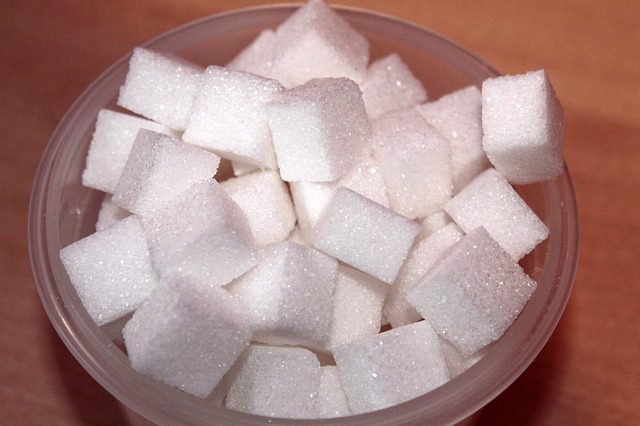Hidden Sugar Trap

Often when we think of sugar we picture things like a chocolate bar, biscuit or cake but sugar can come in all shapes and forms. It is these ‘hidden’ sugars that can end up doing the most damage to our overall health.
On average Australian adults consume 60 grams (15 teaspoons) of added sugar per day and children aged 14-18yrs old consume 81.9 grams (20 teaspoons) per day. The World Health Organisation (WHO) recommends limiting added sugar consumption to less than 6 teaspoons of sugar per day to reduce the risk of tooth decay and other health problems.
Fruits, vegetables and dairy products all contain natural sugars as well as containing fibre and other nutrients. These foods are a much healthier option compared to processed and packaged foods.
On packaged food labels, you can find sugars included in the ingredients list and on the nutrition information label. Avoiding sugar all together is not necessary but becoming aware of hidden sugars and avoiding large amounts of added sugar will reduce your risk of tooth decay and other health issues like diabetes and obesity.
We all know soft drinks, baked goods, lollies, flavoured milks and desserts have high amounts of sugar but it is the hidden sugars you need to watch out for. Keep an eye on the added sugar to foods you might not typically think of as sugary foods, such as:
- Sauces, including condiments, stir fry sauces, pizza and pasta sauces
- Salad dressings
- Fruit juices
- Bread
- Yoghurts
- Muesli and breakfast cereals
- Alcoholic drinks
- Iced tea
- Protein bars
Helpful tips to lower your risk of tooth decay:
Avoid sugary drinks. Drink water instead.
- Avoid food and drink that contains more than 15g of sugar (or alternative names for sugar) per 100g in contents.
- Eat healthy options such as fruit, vegetables, nuts, legumes, wholegrains, fish and lean meat.
- Check the nutritional information on packaged foods to see what type of sugar the item contains. Natural sugar is always better than added sugar.
- Try making your own food products, this will allow you to monitor the amount of sugar that goes into the products.
- Homemade treats are a much healthier option.
- Limit the amount of sugary foods you consume. Try eating healthy alternatives such as fruit for dessert rather than a chocolate biscuit.
Common names for added sugar:
Agave nectar
Brown rice syrup
Brown sugar
Cane juice
Cane sugar
Caster sugar
Coconut Sugar
Corn syrup
Demerara sugar
Dextrose
Fructose
Glucose
Golden syrup
High fructose corn syrup
Honey
Icing sugar
Invert Sugar
Lactose
Malt syrup
Maltodextrin
Maltose
Maple syrup
Molasses
Muscovado sugar
Palm sugar
Rapadura Sugar
Raw sugar
Rock sugar
Sucrose
Treacle
Turbinado sugar
If you have any questions or thoughts, why not post your comment below.
